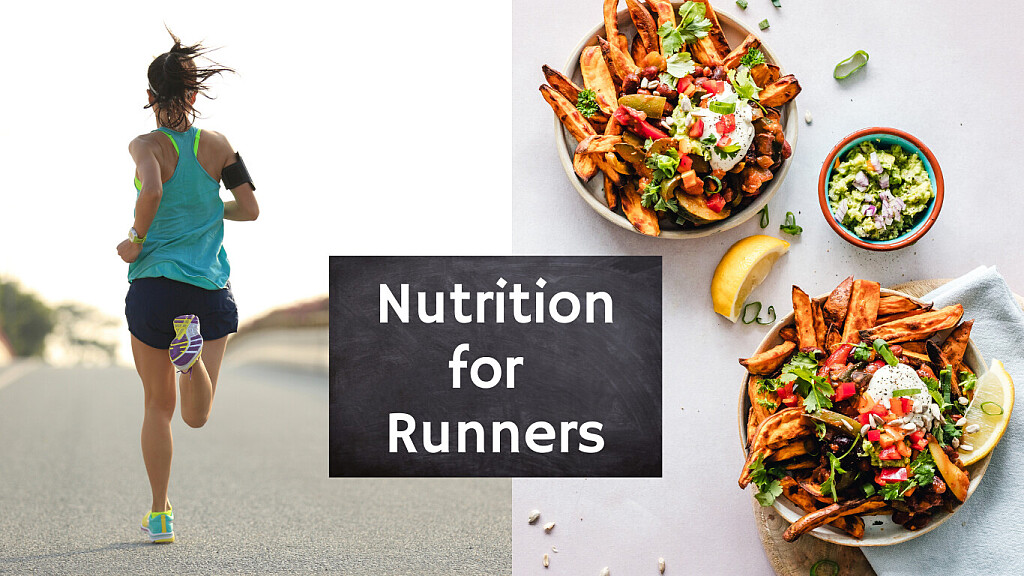Running News Daily
Running News Daily is edited by Bob Anderson. Send your news items to bob@mybestruns.com Advertising opportunities available. Train the Kenyan Way at KATA Kenya and Portugal owned and operated by Bob Anderson. Be sure to catch our movie A Long Run the movie KATA Running Camps and KATA Potato Farms - 31 now open in Kenya! https://kata.ke/
Index to Daily Posts · Sign Up For Updates · Run The World Feed
Five nutrition rules runners can forget
Proper nutrition can make a big difference to your running performance, but there are a lot of myths out there that can derail your efforts for a new personal best. These six nutrition “rules” are probably doing more harm than good, and we’re here to tell you it’s time to forget about them.
1.- Fasted runs will improve performance

There is some evidence to suggest that doing some of your runs in a fasted state will improve your body’s ability to use fat for energy rather than glycogen (which is stored carbohydrate), which is good for endurance. But for most (especially female) runners, this is likely to decrease their performance during workouts.
As Dr. Stacy Sims explained in this interview, women’s bodies already preferentially use fat and protein for fuel. Because of this, fasted training in women increases cortisol levels, causing a cascade of poor adaptation, fatigue, depression, anxiety and a build-up of body fat.

If you run early in the morning or prefer not to have a lot of food in your stomach when you run, don’t fret. Even just something small like half a banana or a piece of toast 10-20 minutes before you head out the door is all you need to bring your blood sugar up and decrease your cortisol levels.
2.- Gluten is bad for you
Unless you have celiac disease or a gluten allergy, this is simply not true. The gluten-free diet has risen in popularity over the last decade, but in many cases, it is actually less healthy than a standard diet, due to the often highly-processed nature of many gluten-free foods. If you’re experiencing GI distress and you think gluten might be the problem, talk to your doctor. They will be able to rule out other potential causes of your discomfort and help you resolve the issue.
3.- You need supplements to meet your nutrition needs
If you have diet restrictions, you may need some supplements to meet your nutrition needs, but otherwise, you can get everything you need from a healthy, well-balanced diet that contains plenty of fruits and vegetables. If you think your diet may be lacking, consult a dietitian (preferably with expertise in sports nutrition). They can assess your current eating habits and work with you to ensure you’re meeting your nutrition needs through whole foods. Then they can make supplement recommendations based on your goals and your lifestyle.
4.- You should never eat white bread or white rice
Fibre is an important nutrient, and many well-meaning runners have banished all non-whole-grain foods from their diets in the name of optimal health. The truth is, foods like white bread and white rice often do have a place in a runner’s diet and can provide a quick source of energy ahead of a big run or workout. Running can also be hard on your gut, and for some runners, too much fibre can exacerbate already-existing GI issues. Plus, eating fibre-rich foods too close to a run can cause GI distress, even for runners with strong stomachs. So while whole-grain, high-fibre foods are an important part of your diet, don’t be afraid to reach for the white rice once in a while.
5.- You need to watch your calorie intake to stay lean and fast
Countless runners have fallen prey to the “lean equals fast” mentality, but not only is this not true, it will ultimately decrease your performance, and it’s also potentially dangerous. Runners should always focus on consuming plenty of calories to fuel their training. Underfuelling will likely cause your performance in workouts to suffer, and is likely to lead to injuries like stress fractures and burnout. Listen to your body and eat whenever you’re hungry (and don’t skimp on healthy carbs). If you’re having trouble eating enough to keep up with your training, talk to a dietitian, who can give you strategies to ensure you’re fuelling properly.
by Brittany Hambleton
Login to leave a comment




